 ———-
———-
Hellraisers Journal – Sunday October 10, 1909
Louis Duchez on Victory of McKees Rocks Strikers, Part II
From the International Socialist Review of October 1909:
[Part II of II.]
—–
On August 15th, the I. W. W. advertised a mass meeting to be held on Indian Mound. Large posters printed in five different languages were displayed. Eight thousand men attended the meeting—nearly all strikers, and many railroad men and trade unionists and laborers from Pittsburg.
William E. Trautman first addressed the meeting in English and German, after which the men were parcelled off in lots. Nine different nationalities were spoken to—besides these two—and to each man his own tongue.
To Ignatz Klavier, a Polander and member of the Socialist Party who speaks five languages fluently, much credit is due for enlightening the McKees Rocks strikers on the principles of industrial unionism. It was Klavier who, during the second week of the strike, brought out clearly the distinction between the A. F. of L. and the I. W. W. He was ably assisted by Henyey, a Hungarian, and Max Forker, a German.
A wonderful spirit of solidarity was shown by the trainmen of the Pittsburg, Ft. Wayne and Chicago and on the Pittsburg and Lake Erie roads—the only railroads running into McKees Rocks, when the trainmen refused to haul scabs to the plant. This is the first time in the history of labor troubles in the United States that this has been done. This was another example of the tactics of industrial unionism directly due to I. W. W. propaganda and education. Not only did the railroad men lend their aid to the strikers but the crews on the two company steamers, “The Queen” and “The Pheil,” refused to haul the scabs. This also is due to the work of the Unknown Committee and the great wonderful spirit of solidarity that is spontaneously stirring the wage slaves of the world. Even the school children of “Hunkeytown” refused to attend school until the strike was settled.

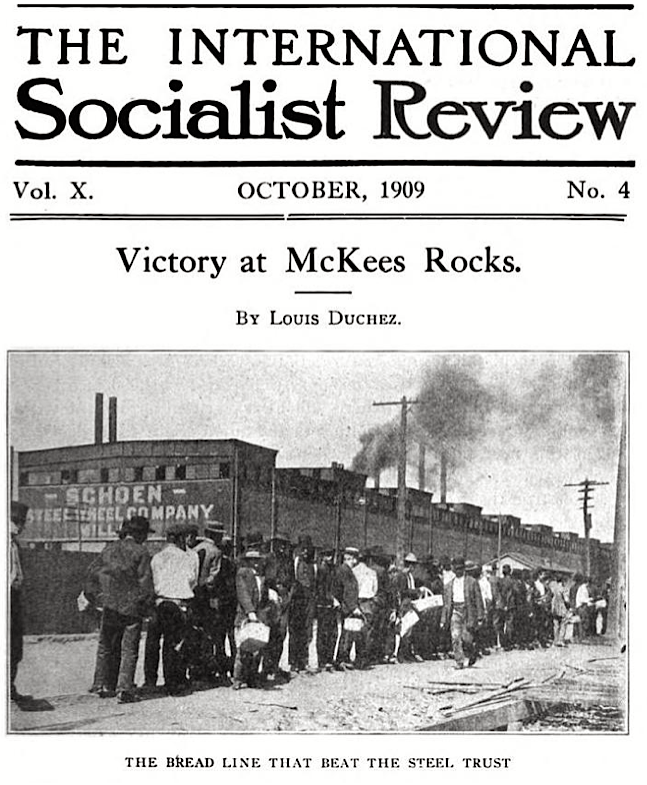
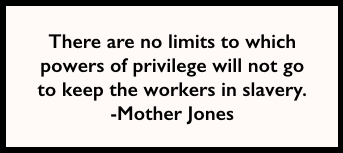 ———-
———-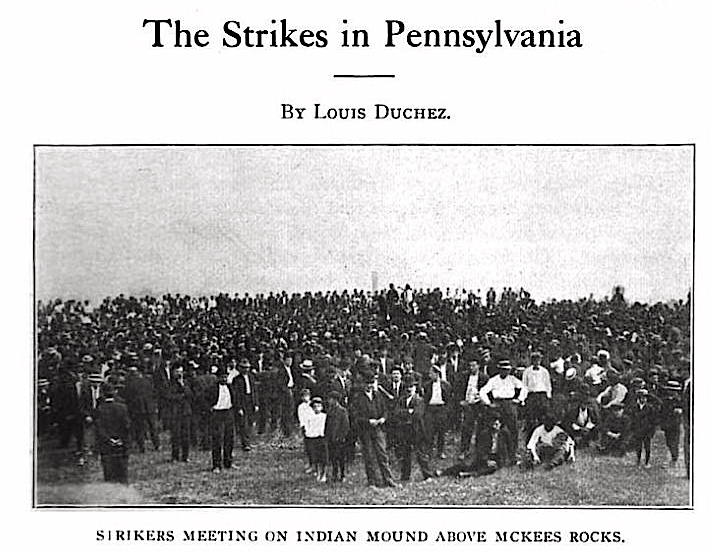 —–
—–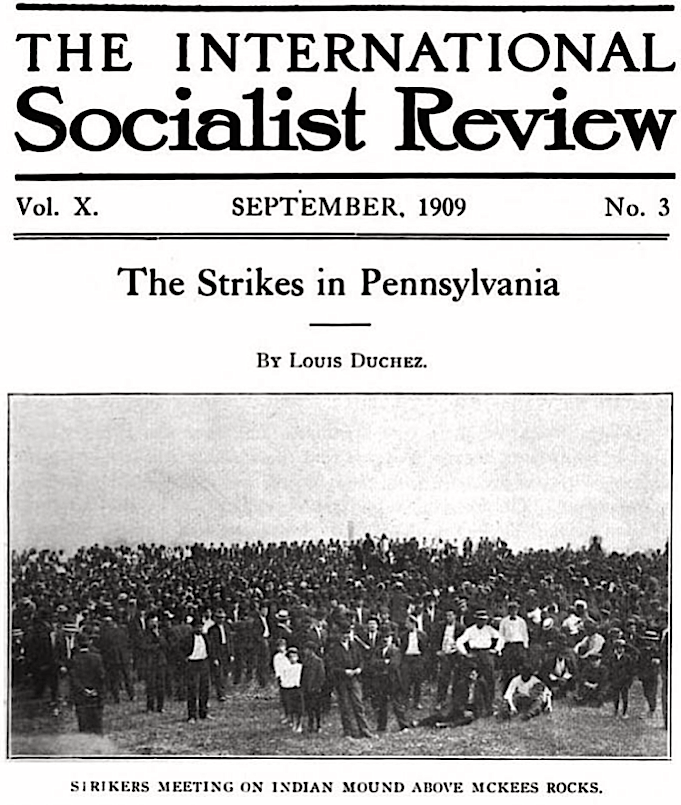
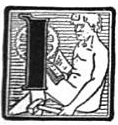
 The strike of the workers at the Pressed Steel Car plant, and at McKees Rocks, New Castle and Butler, Pa., near Pittsburg, is being fought by the employers and their troops with all the brutally and outrage which remind one of Homestead and the other slaughter pens of America. In addition to numerous outrages on the part of the employers’ troops, on August 22, 10 strikers were killed buy the militia, who opened a volley fire on the crowd of men, women and children. Four of the bloodthirsty soldiers were killed in the fight. They, at least, will never kill any more strikers. The account of the affair, while distressing, is a reminder that the fighting spirit of the workers is not dead, and that the working people are realizing that they have no rights to life, liberty, or the pursuit of happiness, unless they have the power themselves to enforce those rights. It is not for the parlor, kidglove revolutionist to preach meekness and “peaceful methods” to these brave workers who are fighting for their lives and to protect the honor of their families, nor for other working people to lay down hard and fast rules for those who are goaded and stung by tyranny and oppression……
The strike of the workers at the Pressed Steel Car plant, and at McKees Rocks, New Castle and Butler, Pa., near Pittsburg, is being fought by the employers and their troops with all the brutally and outrage which remind one of Homestead and the other slaughter pens of America. In addition to numerous outrages on the part of the employers’ troops, on August 22, 10 strikers were killed buy the militia, who opened a volley fire on the crowd of men, women and children. Four of the bloodthirsty soldiers were killed in the fight. They, at least, will never kill any more strikers. The account of the affair, while distressing, is a reminder that the fighting spirit of the workers is not dead, and that the working people are realizing that they have no rights to life, liberty, or the pursuit of happiness, unless they have the power themselves to enforce those rights. It is not for the parlor, kidglove revolutionist to preach meekness and “peaceful methods” to these brave workers who are fighting for their lives and to protect the honor of their families, nor for other working people to lay down hard and fast rules for those who are goaded and stung by tyranny and oppression……